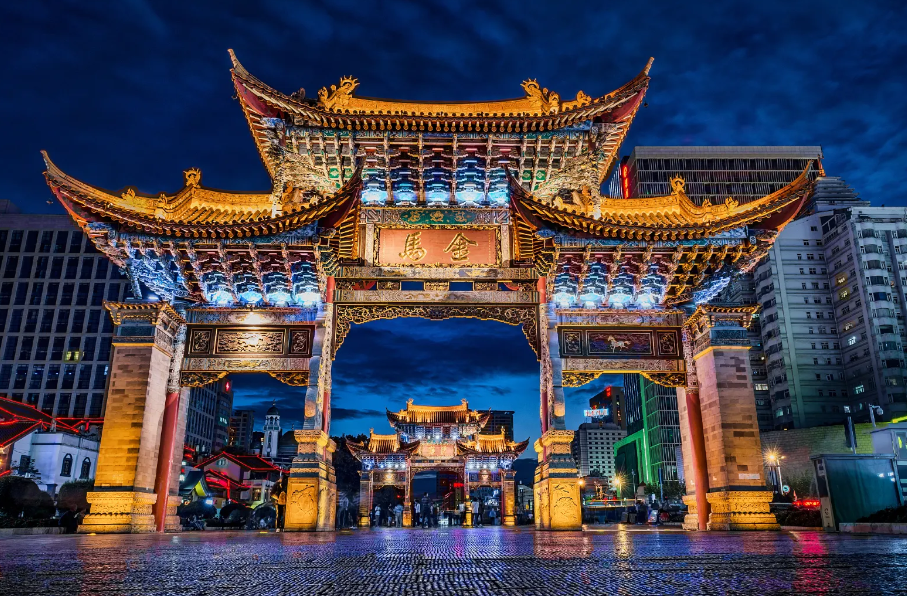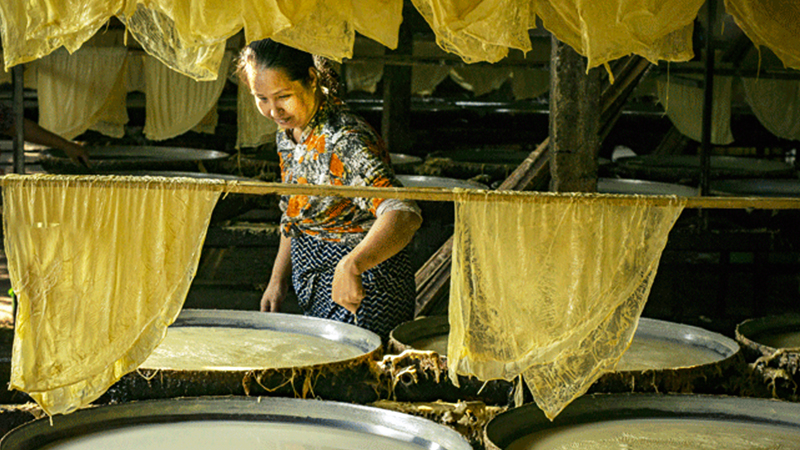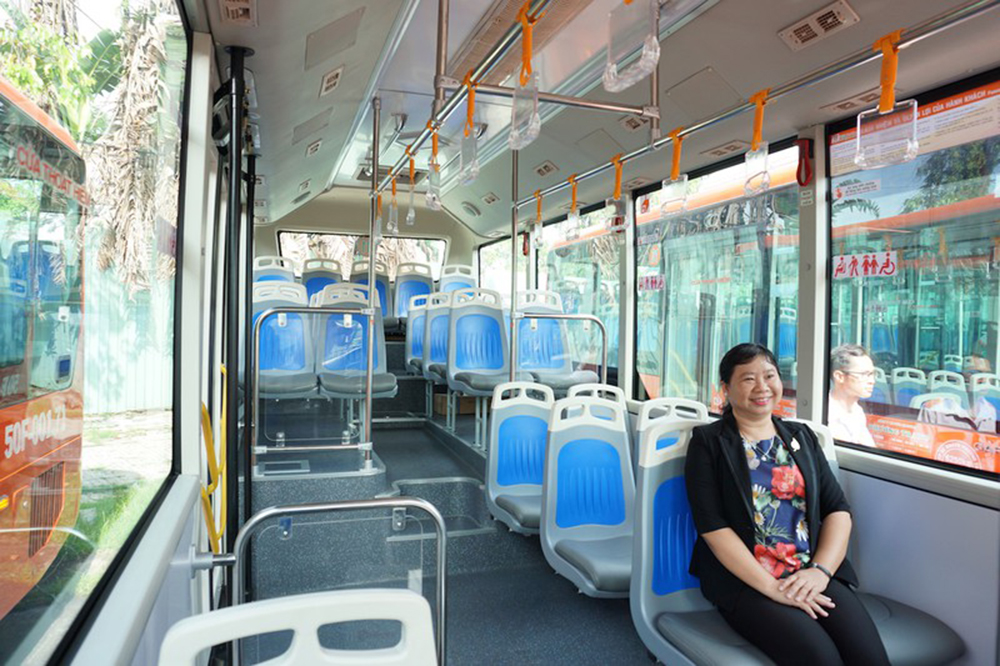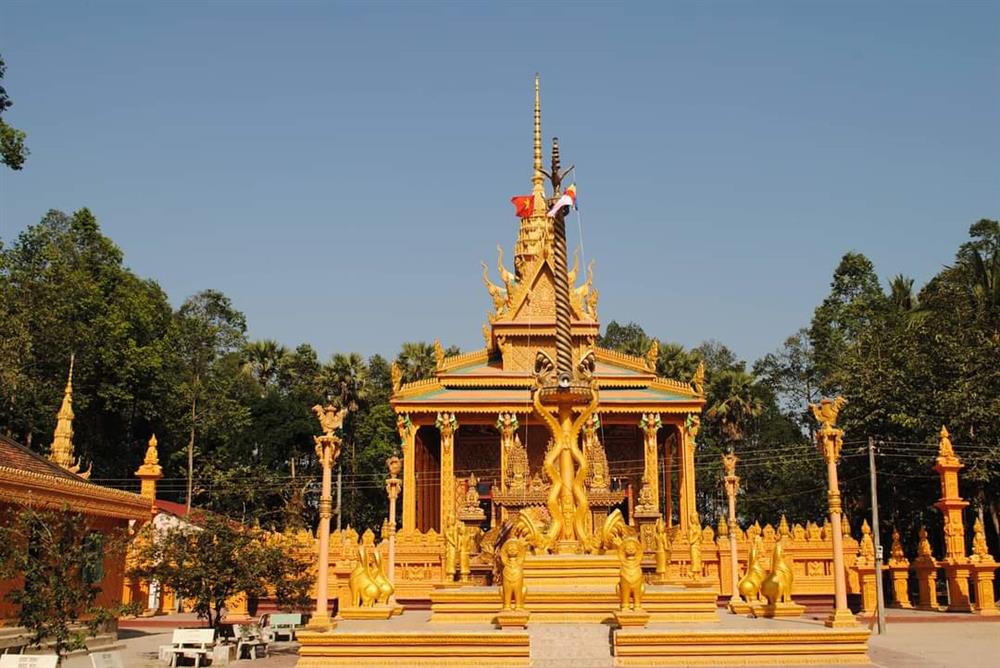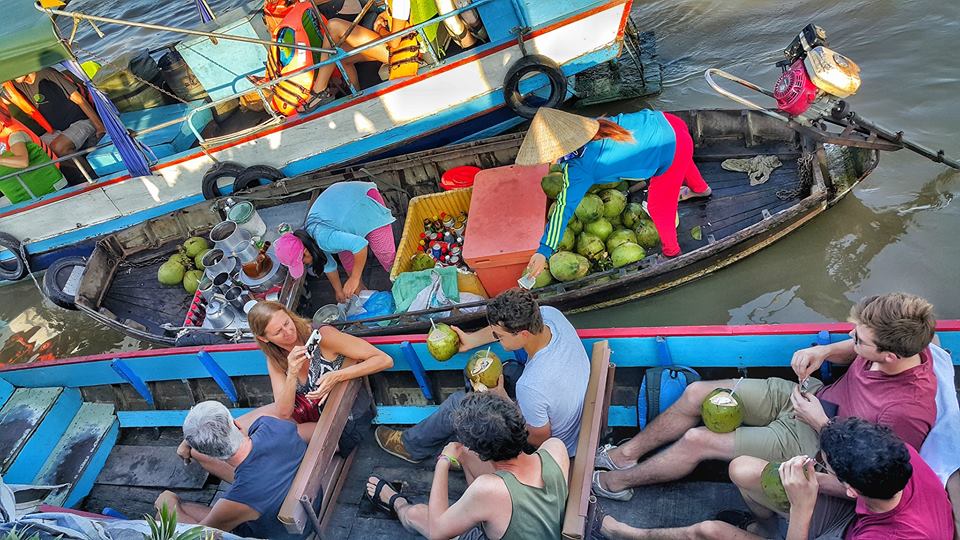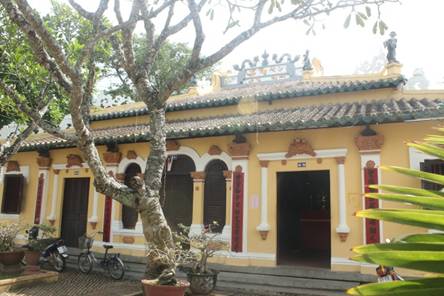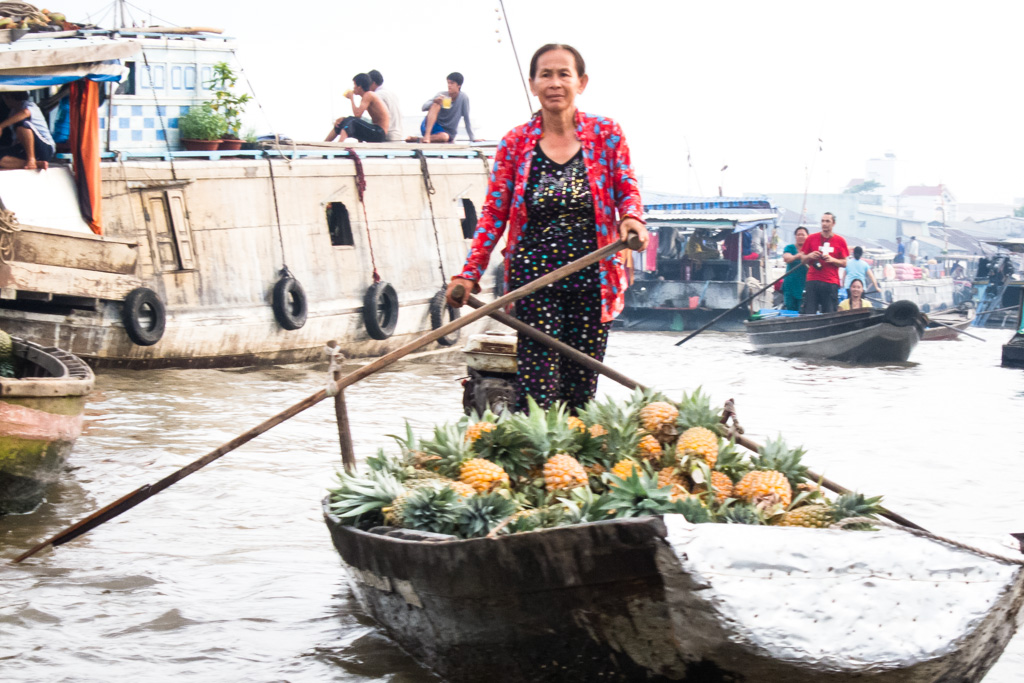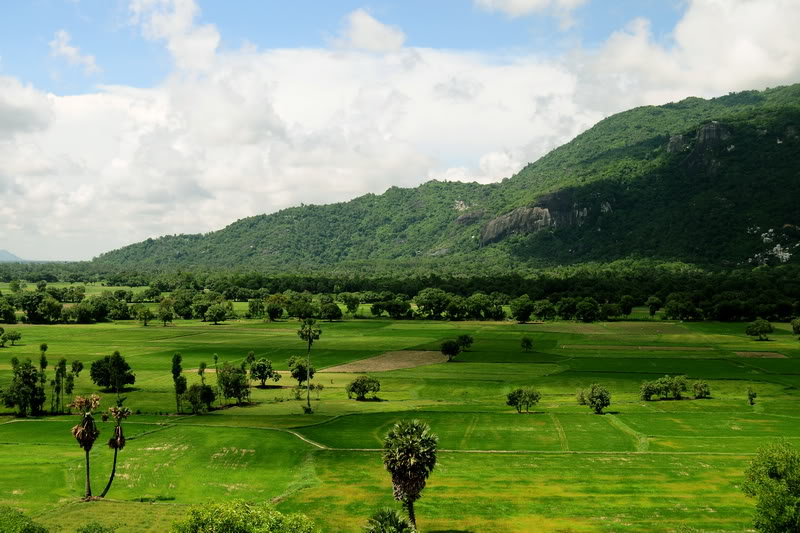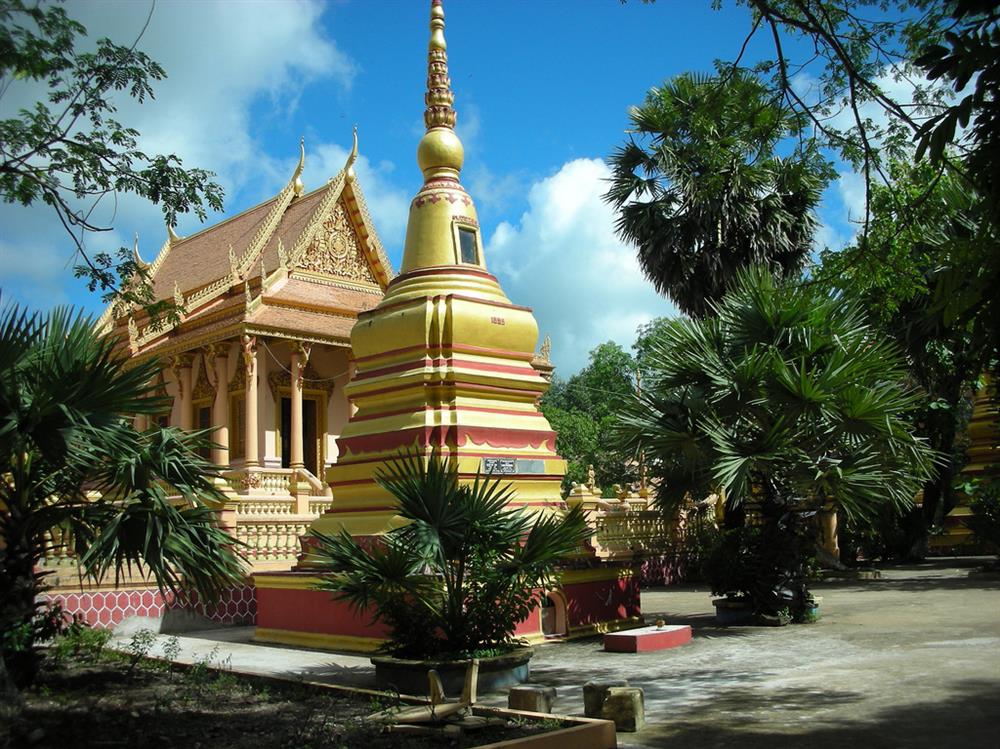Phu Tan Village in the south central province of Phu Yen is well known for its century-old sedge mat weaving tradition.

Children fly kites on a green sedge field in Phu Tan Village of Tuy An District, about 30 kilometers from Tuy Hoa, capital of Phu Yen, home to beautiful beaches.
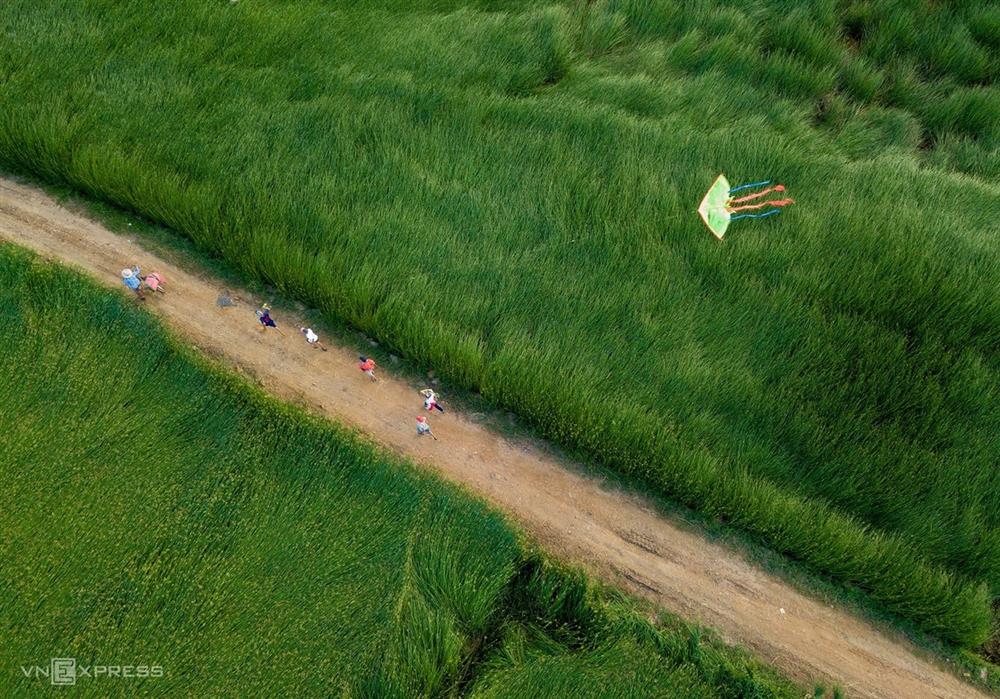
Across Vietnam’s Central Highlands and south-central provinces, sedge mats are widely used. For many residents, these mats, made from sedge, a plant like grass that grows in temperate and cold regions, are the preferred, comfortable option to sleep on.
Phu Tan villagers enter the busy sedge harvesting season from May to July annually.
During harvest season, locals flock to their fields to tie collected sedge into bundles.

The village previously had 25 hectares of land covered in sedge, though five hectares have been converted for growing grass to raise buffaloes and cows.

After harvesting, people shake the sedge to keep it straight. "Harvesting sedge is quite hard and farmers often work under the scorching sun to earn an extra income," said 32-year-old Le Chi Trung, a Phu Yen native, who shot the photos.

Bundles of sedge are piled onto a delivery tricycle to be transported to the village.
Nguyen Thi Minh Phuong, one of the largest sedge mat producers in Phu Tan, said her family business employs around 30 workers.

In Phu Tan, locals tie bundles of sedge into rafts to transport home.

A man pulls bundles of sedge tied into a raft along a river. In order to have enough raw materials for production, the village needs from 25 to 30 tons of sedge material on average per month.
A delivery tricycle transports sedge to the village, passing by golden rice fields.

Women in conical hats dry sedge under the sun.

"To create the photo collection, I stayed with local villagers for a month to discover more about their daily lives and the process of weaving mats," Trung said.

Sedge is harvested and sun-dried, then clustered and dyed. Colored sedge strings are sun-dried again and woven into mats. The dyeing stage is very important and requires experienced craftsmen.

The village's products are popular in many other provinces, including Gia Lai, Dak Lak, Khanh Hoa and Binh Dinh.

The village has five mechanized production sites. A pair of hand-woven mats costs VND50,000 - 60,000 ($2.17-2.60) while machine-woven mats cost VND130,000 - 160,000 per pair.
The average income of mat weaving workers is around VND2.5-3.5 million a month.








